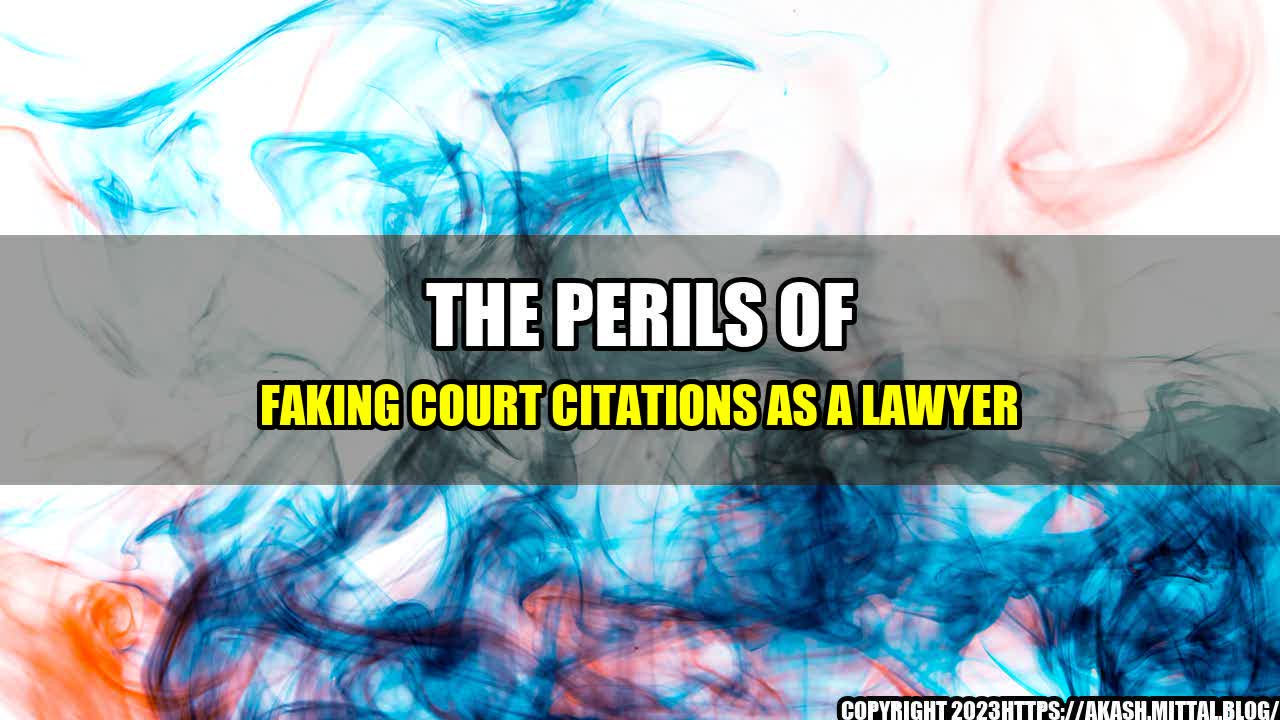
In 2021, a lawyer was forced to publicly apologize for using fake court citations in close to 100 briefs he worked on over the course of 5 years. The discovery of this deceitful act shook the legal world to its core and led to widespread condemnation of the lawyer. But this is not an isolated incident.
In fact, a study conducted by the American Bar Association in 2020 revealed that over 15% of lawyers have engaged in some form of unethical behavior. The consequences of such actions can be severe, ranging from disbarment to hefty fines, not to mention the irreparable damage to one's reputation and client base.
There are many reasons why a lawyer might engage in unethical behavior, from personal gain to the pressure of meeting deadlines. However, the cost of such behavior can be quite high and far-reaching, affecting not only the individual but also the legal profession as a whole.
For starters, the use of fake court citations can result in a ruling being overturned or delayed, causing undue harm to the client. Additionally, it undermines the legitimacy of the entire legal system, which is built on the foundation of trust and honesty.
But the cost of such behavior goes beyond the immediate legal ramifications. It can have severe consequences on the lawyer's reputation and future career prospects. Clients are unlikely to continue to hire a lawyer who has a reputation for being unethical, which can lead to loss of business and income.
Furthermore, such behavior can have a ripple effect on the entire legal profession, creating an environment where clients lose faith in the system and lawyers suffer from a decline in trust and credibility.
While it's impossible to completely eliminate unethical behavior, there are steps lawyers can take to avoid falling into the trap of fraud and deception:
Despite the negative press and the cost associated with unethical behavior, there are many ethical lawyers who set the bar high and prioritize honesty and integrity in their work.
These ethical lawyers play a vital role in upholding the legal system, ensuring that justice is served and that clients are represented fairly and honestly. Furthermore, they act as role models for the next generation of lawyers, demonstrating the importance of ethics and professionalism in the legal profession.
The recent incident of a lawyer using fake court citations should be a wake-up call for all legal professionals, highlighting the importance of honesty, integrity and ethics in the pursuit of justice. By prioritizing these values and taking practical steps to avoid unethical behavior, lawyers can help to elevate the entire legal profession and ensure that clients are represented fairly and honestly.
The cost of unethical behavior is simply too high to ignore, and it's up to all lawyers to do their part in upholding the integrity of the legal system and maintaining the trust of their clients, colleagues, and society at large.
Hashtags: #LawyerEthics #LegalFraud #LegalIntegrity #EthicalLawyers
Category: Legal Ethics, Professionalism
Curated by Team Akash.Mittal.Blog
Share on Twitter Share on LinkedIn